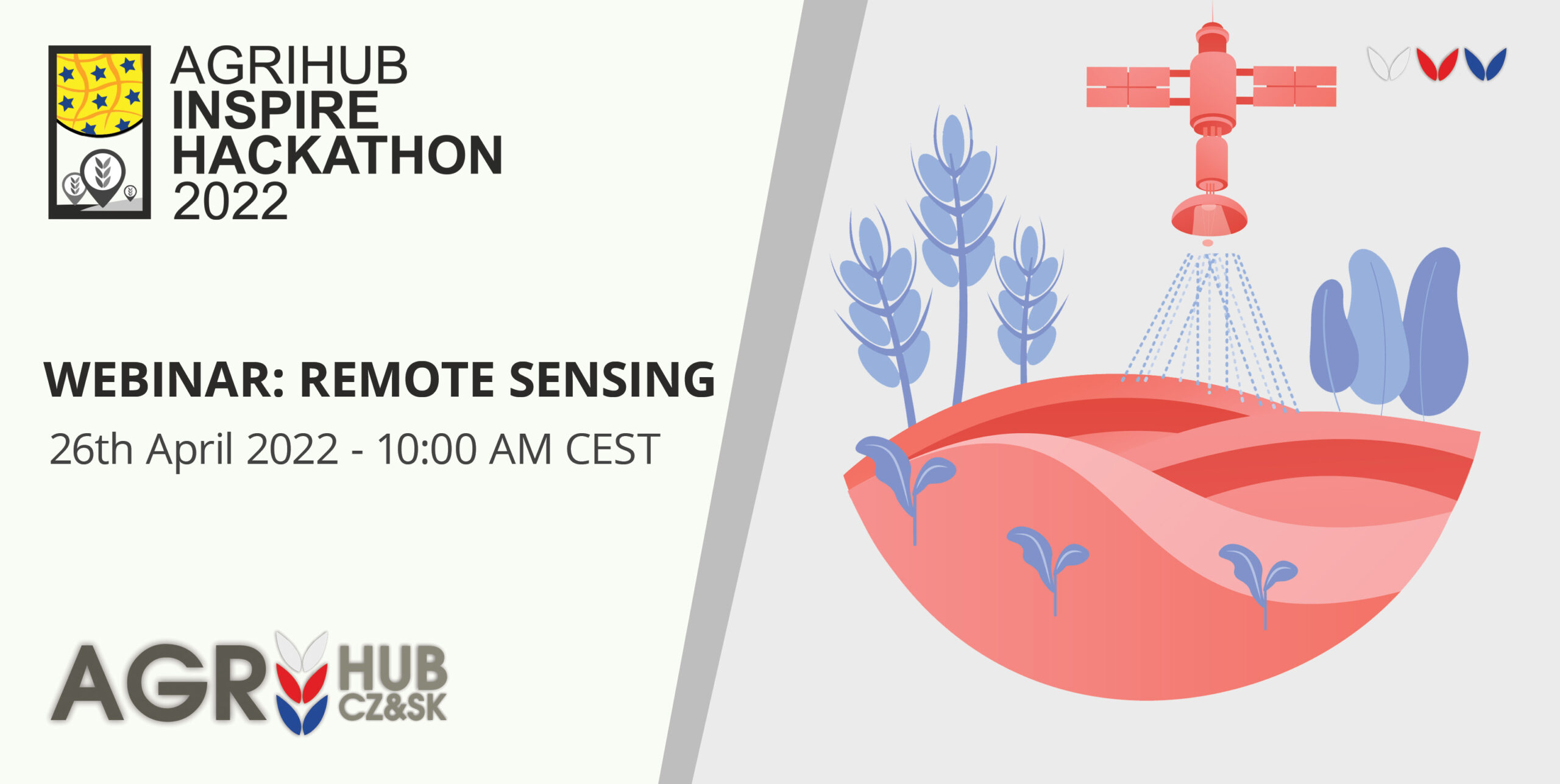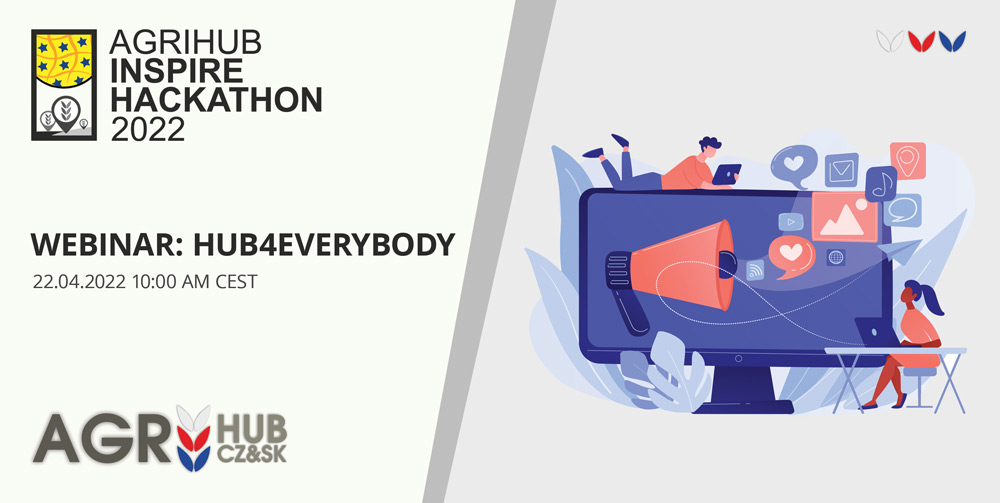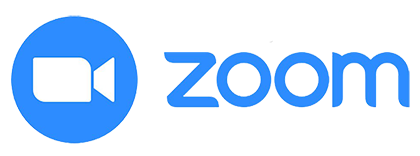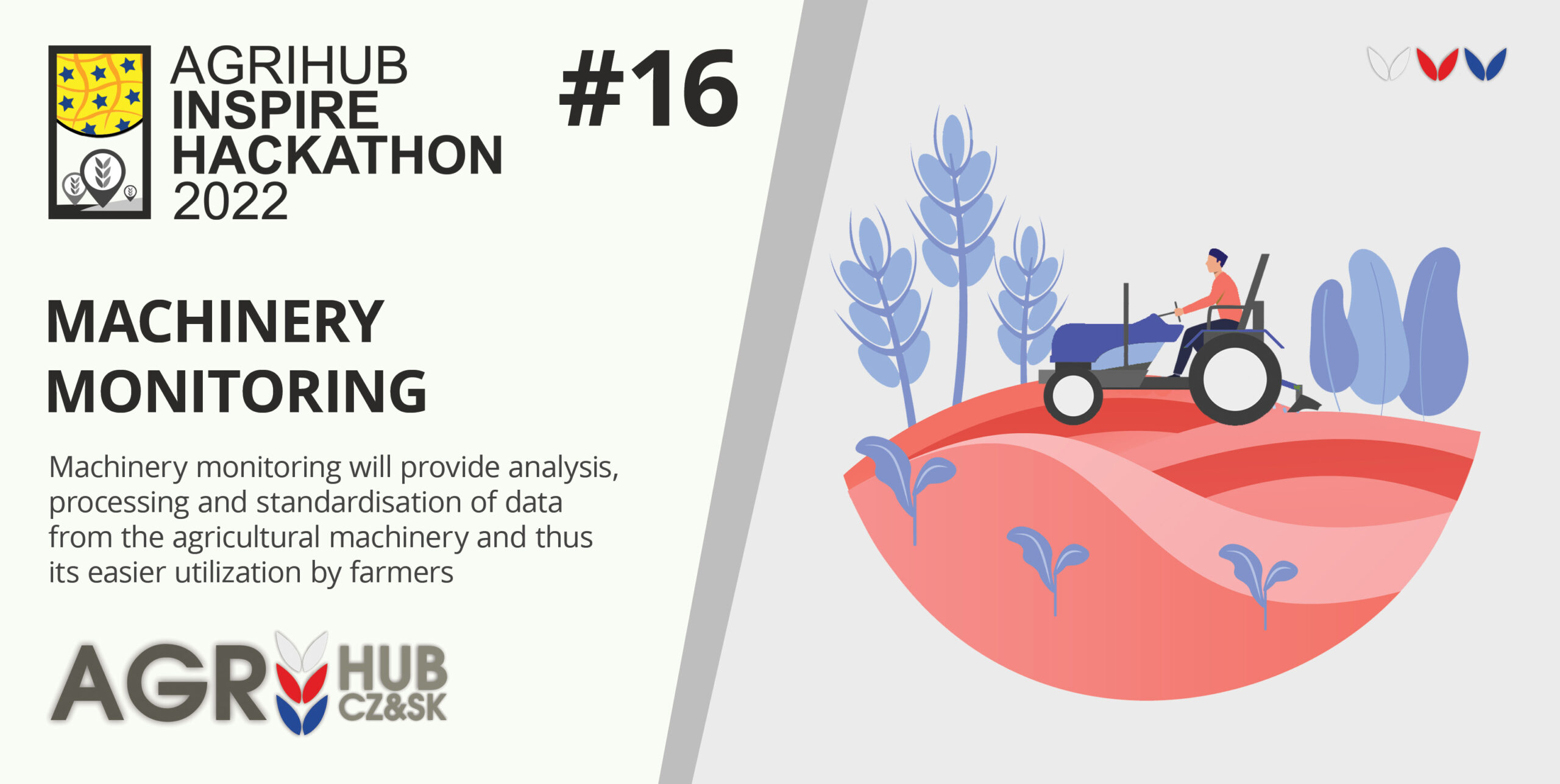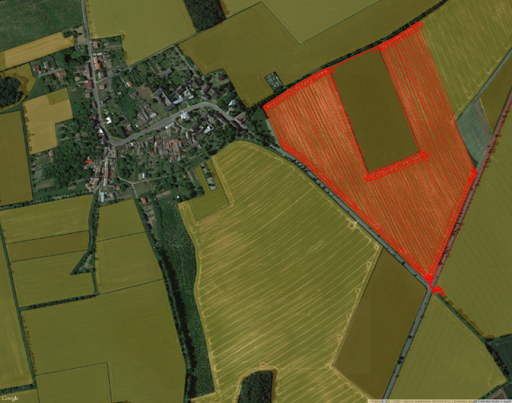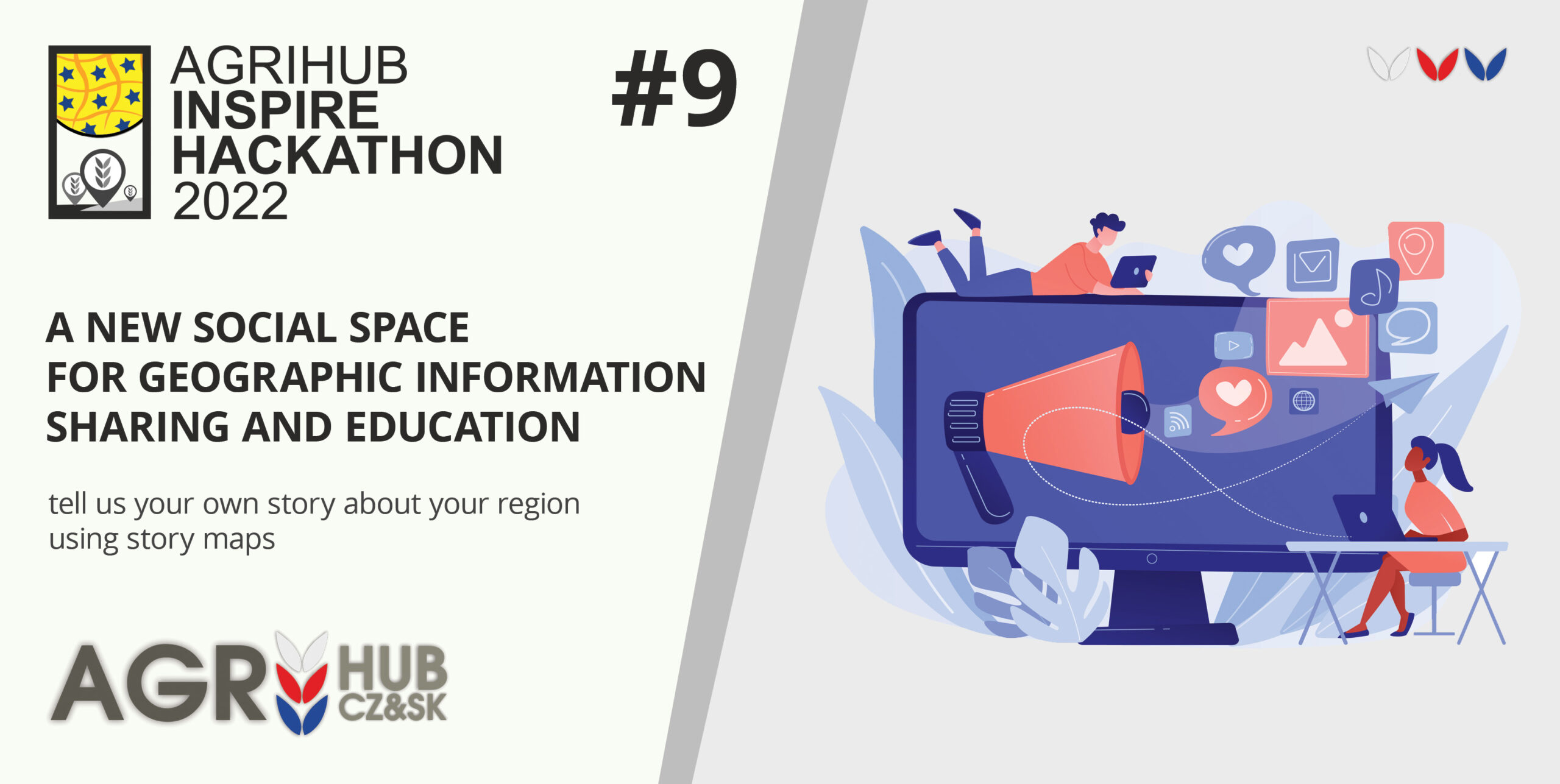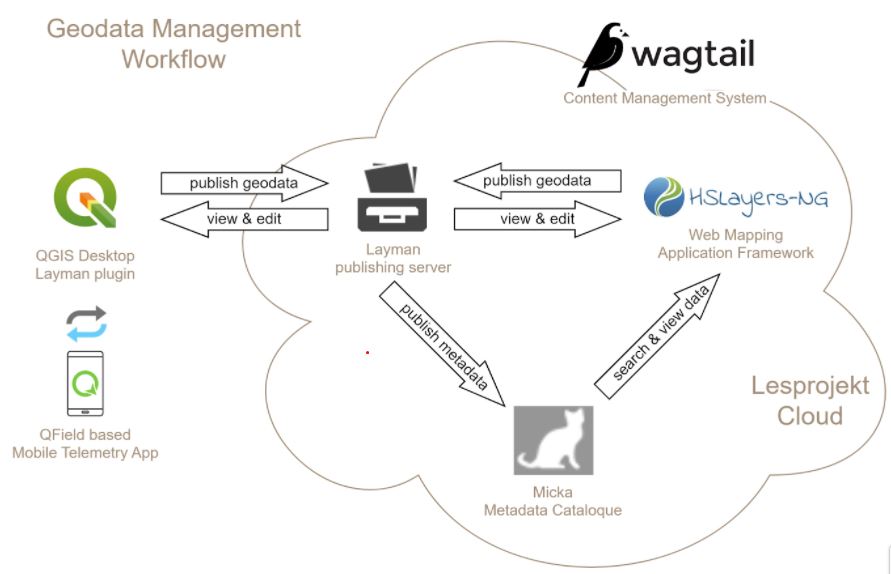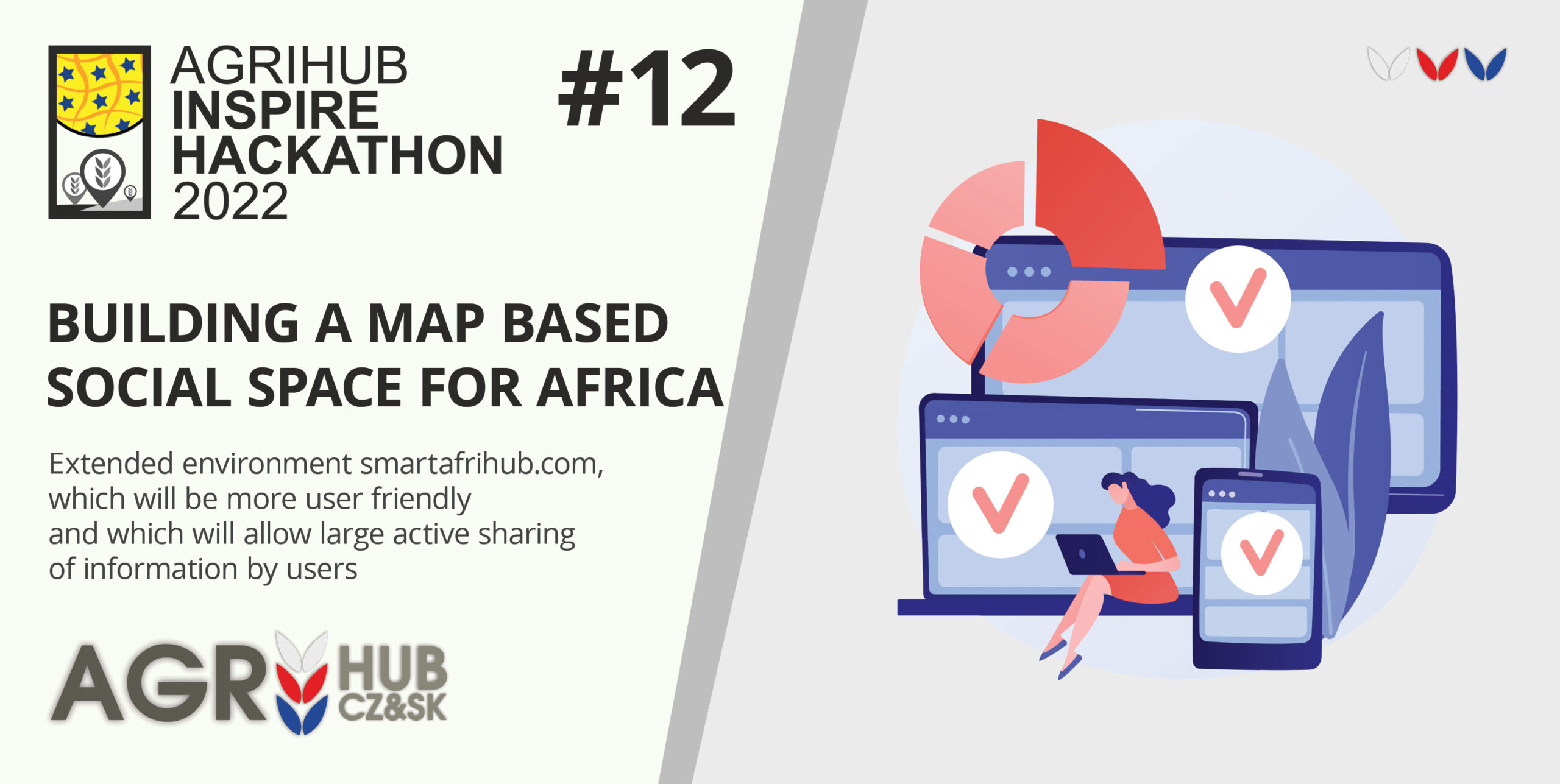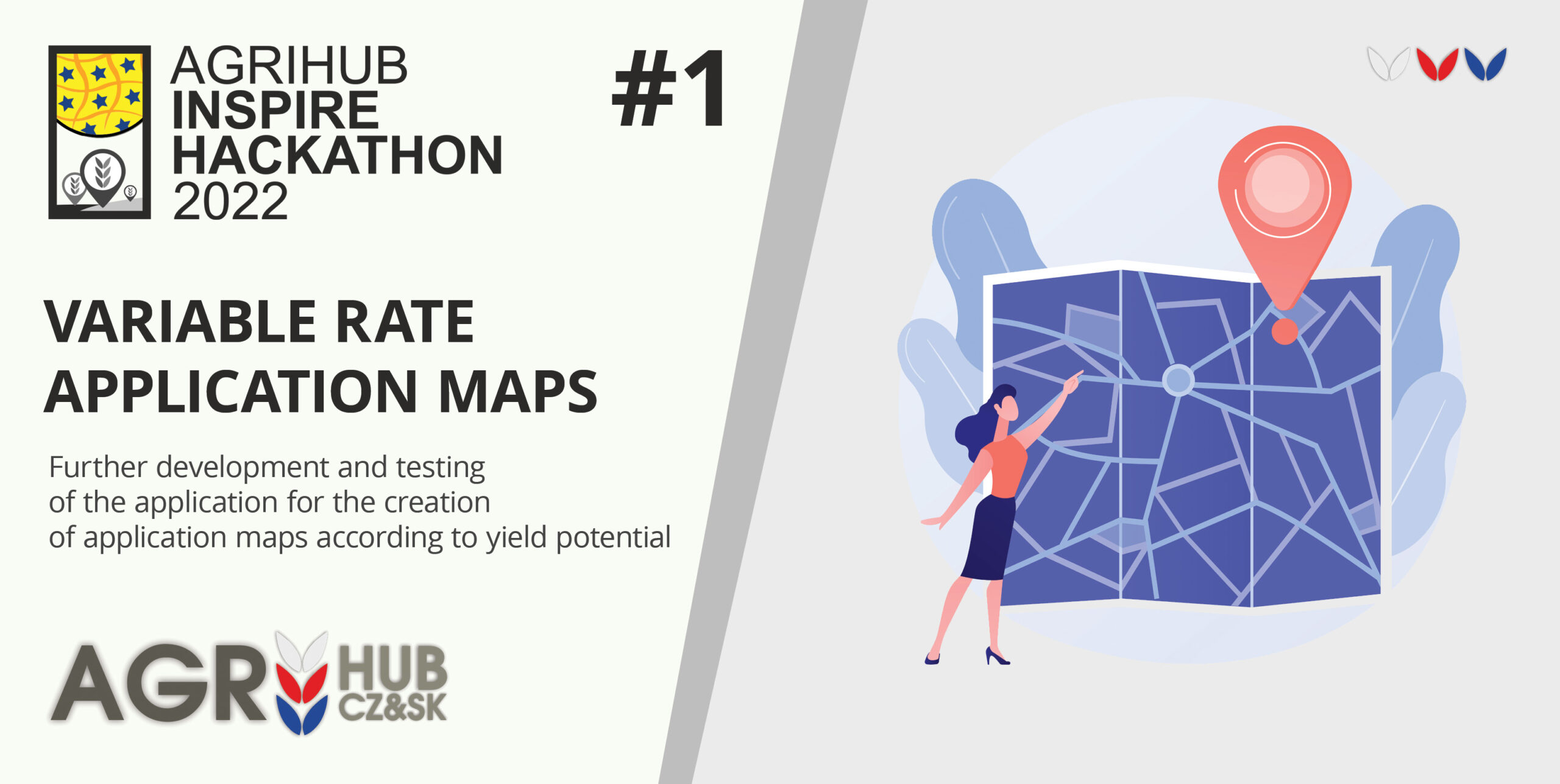Category Archives: News
VIDEO: Hub4Everybody Webinar
Invitation to Remote Sensing Webinar
Whether you are driven by rising input costs to use resources as efficiently as possible or are a fan of modern approaches, we invite you to a webinar on remote sensing in agriculture. We will give individual farmers and more broadly focused professionals a hands-on demonstration of creating application maps from satellite imagery.
The webinar is scheduled on 26/04 at 10 AM CEST.
Venue: virtual
Language: english
Duration: 1 hour
Registration for the webinar is FREE. Register yourself via this link.
Agenda:
10:00 – 10:10 Introduction to Remote Sensing – Heřman Šnevajs
- Satellite systems, purpose of remote sensing Sentinel 1,2, Landsat and how they can help to Agriculture
- What are the advantages and disadvantages of systems, how they can help farmers.
10:10 – 10:20 Field borders – Heřman Šnevajs
- Why we need to detect filed boards or homogenous areas,
- Who can be potential customer
- Prerequisite for further analyses
- Identification of homogeneous fields
- Methods of analysis
- Unsupervised classification – how it can help and where
10:20 – 10:30 Zoning – Dimitrij Kozukh
- What are management zones
- Make your own application map from any (not satellite) image
10:30 – 10:40 Blockchain – Jiří Kvapil
- How it can help in Earth Observation segment
- Sharing and selling spatial data using blockchain
10:40 – 10:55 FarmInsight – A new platform helping farmers with Variable Rate Application – Karel Charvát jr.
- Integration of previous steps
- A tool for end users
Webinar will introduce two challenges of AgriHub INSPIRE Hackathon 2022:
SEMINAR: Use of sensor data in practice
(introduction of pilot applications not only in the Pilsen region)
The seminar takes place on April 28, 2022 in the Úhlava Education Center, o.p.s. in Klatovy, Plánická 174
Program:
9.00 – 9.10 Opening and welcoming of participants – Úhlava, o. P. S.
9.10 – 9.30 Presentation of the project MANDOLIN and DIH – World – Tomáš Mildorf and Kristýna Čerbová, Plan4all z.s.
Working with satellite data
9.30 – 9.50 Sentinel 2 and Sentinel 1 data processing for agriculture (What data can bring us, what are the problems and benefits) – Heřman Šnevajs and Karel Charvát, WirelessInfo
9.50 – 10.00 Generate your own zones – Jan Macura, Wirelessinfo / Dmitrij Kožuch, Plan4All z.s.
10.00 – 10.15 How to ensure the sharing and sale of satellite products using blockchain technology – Jiří Kvapil, Lesprojekt – služby, s.r.o.
10.15 – 10.45 FarmINSIDER – a platform that integrates research results and methods into an application for end users – Karel Charvát jr., Lesprojekt – služby, s.r.o.
10.45 – 10.55 coffee break
Working with sensors
10.55 – 11.10 Presentation of used solutions in agriculture and food transport – Jaroslav Šmejkal, Lesprojekt – služby, s.r.o.
11.10 – 11.30 Hardware solutions in agriculture and food transport – Agronode and Teltonika – Marek Musil, Czech Open Solutions Center spol. s r.o. and Jaroslav Šmejkal, Lesprojekt – služby, s.r.o.
11.30 – 11.40 Senslog – solution for sensor data collection – Michal Kepka, UWB in Pilsen
11.40 – 12.00 Applications for working with sensors (IE20, Dashboard) – Michal Kepka, UWB in Pilsen
12.00 – 12.20 refreshment break
Support for local sales
12.20 – 12.35 Regional specialties and Atlas of regional specialties – Petr Horák, WirelessInfo
12.35 – 12.45 Sales of regional specialties (e-shop) – Radana Šašková, Úhlava, o.p.s., and Tomáš Zelený, Šumavaprodukt, s.r.o.
12.45 – 13.00 What’s next? – Karel Charvát WirelessInfo
The seminar is intended for owners, managers and other managers and organizational staff of agricultural enterprises, producers and distributors and food trade workers with their own logistics. Due to the current pandemic situation, some contributions may be presented online.
Please do not forget to register to participate.
The seminar is held with the financial support of the DIH-World project funded under the European program H2020, grant agreement No. 952176
Hub4Everybody Webinar is coming up!
Do you have digital maps piling up on your computer? For example, results of student work, feeling maps of locations, results of field surveys or scientific experiments? Do you want to publish, promote or discuss the results of your activities across different target groups?
The answer to your requirements is Hub4Everybody, a system for publishing and sharing geographic data, which will be the focus of this webinar and you are cordially invited!
The webinar is scheduled for tomorrow (Friday, 22nd April) at 10 AM CEST.
You can join the webinar for FREE via following link:
Join Zoom Meeting
https://us06web.zoom.us/j/
Invitation to Hub4Everybody Webinar
Do you have digital maps piling up on your computer? For example, results of student work, feeling maps of locations, results of field surveys or scientific experiments? Do you want to publish, promote or discuss the results of your activities across different target groups?
The answer to your requirements is Hub4Everybody, a system for publishing and sharing geographic data, which will be the focus of this webinar and you are cordially invited!
The objective of this webinar is to introduce a technological solution Hub4Everybody, a basic technology for two challenges defined for the Agrihub INSPIRE Hackathon 2022: Challenge #9 A new social space for geographic information sharing and education and Challenge #12 Building a map based social space for Africa.
The webinar is scheduled on 22/04 at 10 AM CEST.
Registration for the webinar is FREE. Register yourself via this link.
Agrihub INSPIRE Hackathon 2022: Challenge #16 Analysis, processing and standardization of data from agriculture machinery for easier utilization by farmers
MENTOR: Pavel Gnip
Agricultural machinery significantly influences the economic profitability of crop management. How to operate machinery on the field and achieve the best result in farming business? Data collection from running machine in time and location or Meteo sensor on the field can be one of basic controlling for farmers.
Ambition of the challenge
The ambition of the challenge is to prepare tools for quick overview on field data created by machine on the field by selected task for farmers overview and next decision making. Data view and next processing to combine those data with other farm’s data (sensors, labs, other) or open source data for farm practise reason.
Next steps
Verification, data controlling and visualization will be in first step, next step will analyze data with focus on:
- Evaluation of the economic efficiency of machinery operations within the fields – farm
- Precise records of crop management treatments
- Management of machinery operations – increasing the efficiency of planning of crop management
- Control of requirement for field operations:
- Control of pass-to-pass errors and overlaps, coverage of maintained area and recommended work speed
- Control of applied input material in comparison to prescribed rates
- On line monitoring of weeds
- On line monitoring of weather
- ISOxml file from tractor offline
- ISOxml file from tractor online
The registration for the challenges is open! Register for this hackathon challenge HERE.
Agrihub INSPIRE Hackathon 2022: Challenge #9 A new social space for geographic information sharing and education
MENTORS: Otakar Čerba, František Zadražil, Marketa Kollerova
We will test a new environment, where the editorial system will be the key unifying element of the geographical data processing. It will enable the creation of a web portal and also provides a natural connection to other parts of the system. The content management system is based on the Wagtail CMS (Content Management System) platform with the CodeRed CMS extension, see https://wagtail.org and https://www.coderedcorp.com/cms. This is one of the leading open source CMS used by small and large organizations (e.g. Google, NASA, British NHS). Wagtail is based on Django and the main development language is Python. It allows easy extension of functionality in the form of widgets, page templates, as well as permissions or other system parameters. It is therefore possible to integrate with others. This CMS is now integrated with tools supporting easy generation of map context.
This shows the connection of powerful Open Source mapping framework HSlayers, which supports visualization of maps.
Introduction/Context
The content of the challenge will be:
- to test, how people can develop, publish and share their own maps using Web clients or desktop open source tools
- to learn how to build nice map composition
- to build own maps describing specific places or local problems
Ambition of the challenge
- Support effective reuse of existing data
- Build new data content
- Promote regions
- Prepare new type of educational content
Next steps
Part of planned activities will also be focused on the integration of new tools like IoT tools, dashboards and analytical tools.
The registration for the challenges is open! Register for this hackathon challenge HERE.
Agrihub INSPIRE Hackathon 2022: Challenge #12 Building a map based social space for Africa
MENTORS: Akaninyene Obot, Marketa Kollerova
During last year’s INSPIRE Hackathon the SmartAfriHubs Digital Innovation Hub (https://www.smartafrihub.com/cs/home) was developed. Moreover, there was a community built around it, which is now active on WhatsUp and Facebook. We would like this Hackathon to test possibilities of an extended environment, which will be more user friendly and which will allow large active sharing of information by users. It will not be focused only on publishing new maps, but also on developing content in the form of storyboards, producing active content from Africa, using of this content for better training and education, but also supporting sustainable development in Africa. We plan to extend the current community and increase visibility of this solution. There will be all data, which are currently stored on SmartAfriHubs available at the disposal of the hackers, moreover tools for easy data publishing and management, but also tools to develop storyboards and present actively different content connected with map information.
New solution, which is now under development, will be tested with different users. Current platform has architecture according new scheme:
This solution will be available on the Plan4all cloud and will be fully operational.
The basic unifying element of the geodata processing system will be the editorial system. It will enable the creation of a web portal and also provides a natural signpost to other parts of the system. The content management system will be based on the CodeRed CMS – https://www.coderedcorp.com/cms/ (Content Management System). This is one of the leading open source CMS used by small and large organizations (e.g. Google, NASA, British NHS). Wagtail is based on Django and the main development language is Python. It allows easy extension of functionality in the form of widgets, page templates, as well as permissions or other system parameters. It is therefore possible to integrate with other systems used within the organization (city geoportal, etc.) if such a requirement arises in the future. It is now connected with tools, which are already part of SmartAfriHub. The goal is to help different groups of people to build their own content (maps, text, storyboard and others and share it with the community.https://www.coderedcorp.com/cms/
We would like to discuss additional extensions of the system about new functionalities.
Introduction/Context
The Hackathon will have few steps, which we would like to realize:
- Training of participants, how to use single components and how to generate own context and also training about currently available data
- Definition of limited numbers of use cases and build a team, who will prepare full context and prepare attractive publication of this context
- Implementing of context
- Sharing of experiences from use cases and suggestion of improvements
- Preparing final presentation and plan for future sustainability
Ambition of the challenge
The main challenges are:
- to help African students and other people generate own content in attractive from
- to promote sustainability in African regions
- to generate new data
- to provide large scale awareness towards African communities
- to support future business
- to prepare scientific publications
Next steps
The main next step is to make new solutions self-sustainable and form a social space, including a broader community, which will help to introduce new technological concepts in Africa, to support capacity building, and generate new data using principles of citizen science.
Another important point is to define future development priorities.
The registration for the challenges is open! Register for this hackathon challenge HERE.
Agrihub INSPIRE Hackathon 2022: Challenge #1 Further development and testing of the application for creating application maps
MENTOR: Karel Charvát jr.
Introduction/Context
Variable rate fertilizer application (VRA) is one of the ways to reduce fertilizer consumption, increase the efficiency of fertilizer use and reduce the environmental burden. The method is based on monitoring the in-field variability of crop status or soil properties. This variability can be detected or estimated in various ways, and the result of this effort is the creation of a Management Zones map. Management Zone represents an area within the field where the same intensity of growing operation will be used. When we assign a fertilizer rate to each Management Zone within a field, we get an application map that is ready to be exported for use in agricultural machinery.
The web application that will be the subject of this challenge uses yield potential (production zones) to define Management Zones and VRA maps. The yield potential is an estimate of the long-term yield variability within the field.
Ambition of the challenge
The web application (FarmInsight) currently allows farmers to manage their field data, manually plot an application map based on underlying data such as a rough yield potential
map, or order a manually corrected Yield Potential calculation for selected fields and import them as Management Zones for the application map.
The calculation of yield potential maps is partially automated but requires some manual steps.
The goal of this challenge is to propose concepts for extending the possibilities of automatic import of management zones from other sources such as automatically calculated yield potential zones (Challange 11), or general management zones based on indicators other than yield potential.
Testing this application on data from different farms and getting feedback will be part of this challenge.
Next steps
In this challenge we will work with a web-based application for the preparation of VRA maps.
The first version of this application was created within the Horizon 2020 project databio and has been further developed since then. In the near future, the application will be operated and offered to farmers and other users under the name FarmInsight.
We will mainly use the following data:
- LPIS blocks from a continuously updated database,
- vegetation indices and other satellite data,
- calculated yield potential data.
The main objectives of this call are:
- Testing the application using data related to several farms
- Developing concepts for the use of Management Zones from other sources.
The registration for the challenges is open! Register for this hackathon challenge HERE.

